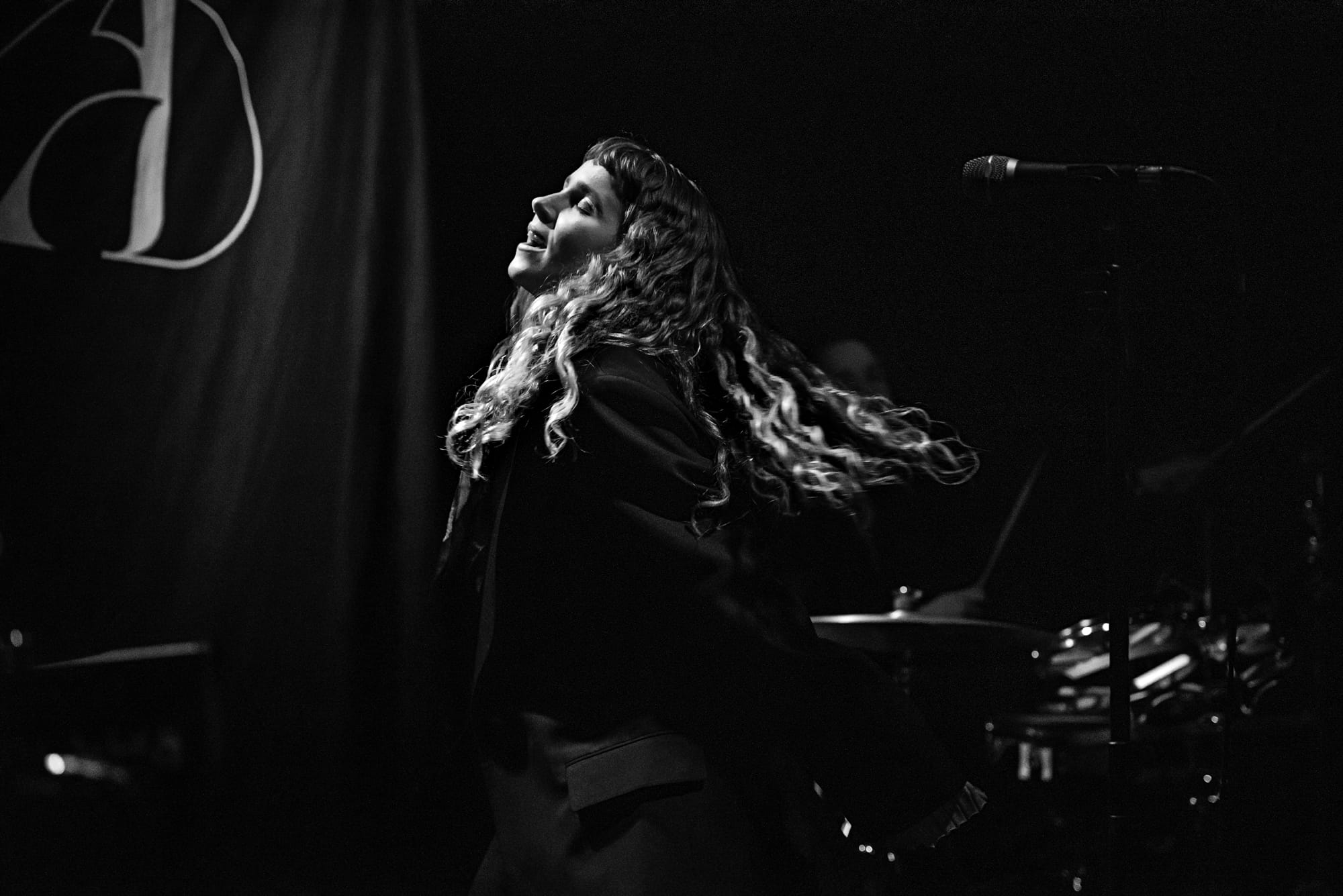Almost exactly five years ago, Moyka entered my life and playlists and never really left. In March 2019, the then-21-year-old Monika Engeseth released her debut single, Colder. After that, the Norwegian artist became a frequent subject in Negative White's reporting: eight times I featured one of her tracks in Weekly5—more than any other artists.
But in all those years, I have never been able to accurately capture my fascination for Moyka in words. Rereading the short reviews, they only scratch on the outer layers, unable to crack the code and bust open the door to reveal the answer.
The blame may fall onto the music itself: Moyka produces pop music, and that is precisely the opposite of what I usually love. However, between these addictively catchy melodies, there is a pinch of melancholy, even sadness, and a cinematic quality to her songs, coated with a Nordic frost.
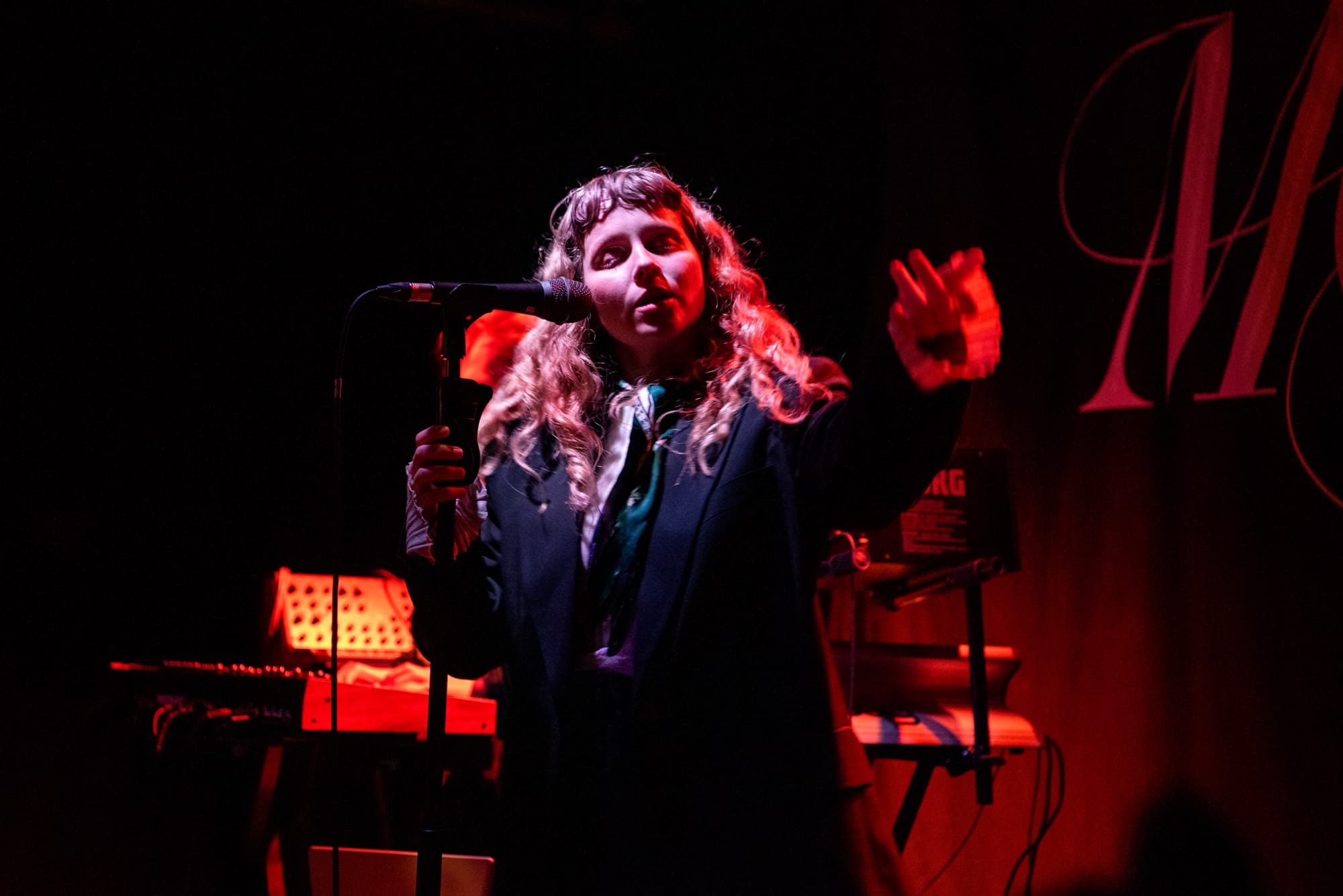
Zurich, 8th of February. The day has finally come: It is Moyka's first concert in Switzerland. Marking the end of her first European tour, she would bring her sophomore album, Movies, Cars & Heartbreak (2023), to the stage.
After writing concert reviews for years, I still struggle, even dislike them—especially if the show was great. I believe people have a lifetime quota for superlatives in writing, and I have already used mine. You try to capture the vibe, and sometimes you succeed. But that is more often pure luck. A writer's happy accident.
And there is this other danger lurking: Anticipation. For months, I have been looking forward to the show; for years, I listened to the songs. What if the concert crumbles under the weight of imaginary expectations?
But I had a mission that night: Find the deeper roots of my fascination for Moyka.
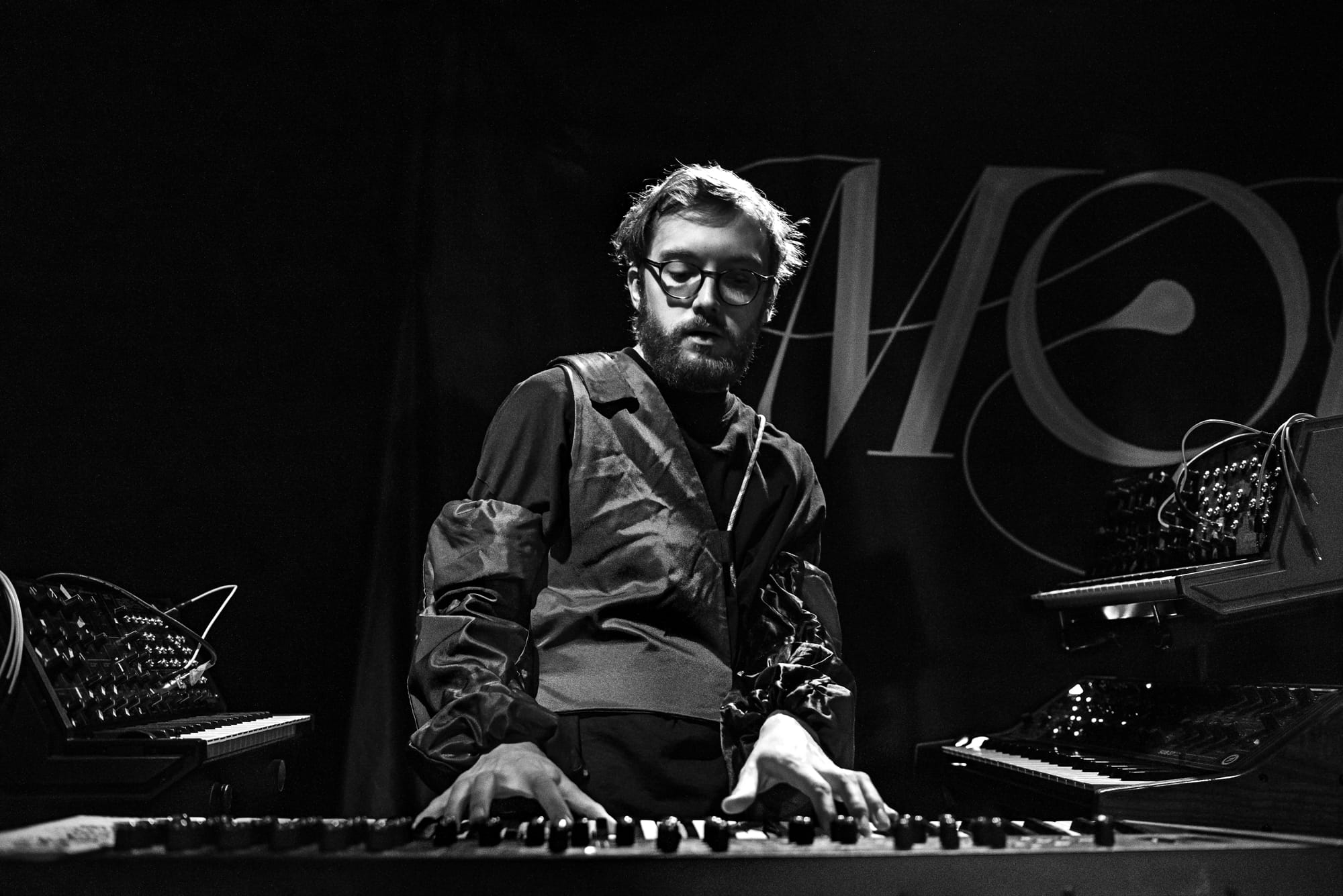
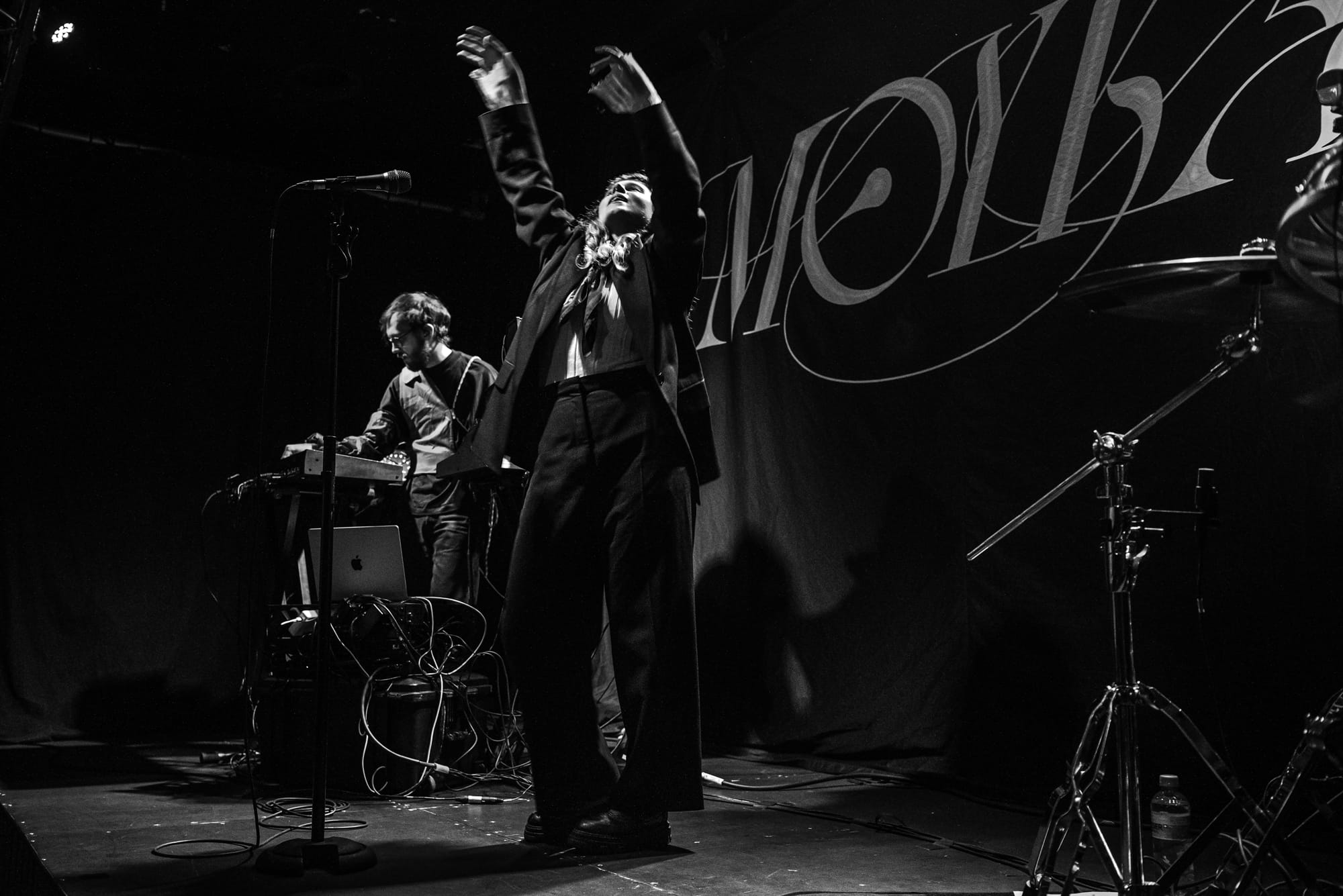

There is something inherently unique about small-scale concerts. Around 30 people found their way to X-Tra Musikcafé that night—a relatively small crowd barely filling half of the already tiny venue. But each and every one wanted to be there.
The show started. Already Gone. Already goosebumps.
The evening defied all challenges: The sound, light, and setlist were exceptional. It lasted an hour, but somehow, Moyka's meandering voice took us into a different dimension where time did not exist. Framed by two men on synthesisers and drums, she delivered a mesmerising, otherworldly vocal performance.
However, it was in between the songs that the pieces finally fell into place. «This evening is a space for big emotions,» Moyka told the audience.
Understanding Moyka means appreciating the duality of music and its inspiration. The Nordic crystalline sound of her ethereal pop creates a reserved distance. These angelic hymns seem larger-than-life, reducing one's existence to a tiny spec of dust in eternity. But underneath this cathedral-sized sound, undiluted emotion builds the foundation and pulls you back into the most profound definition of being human.
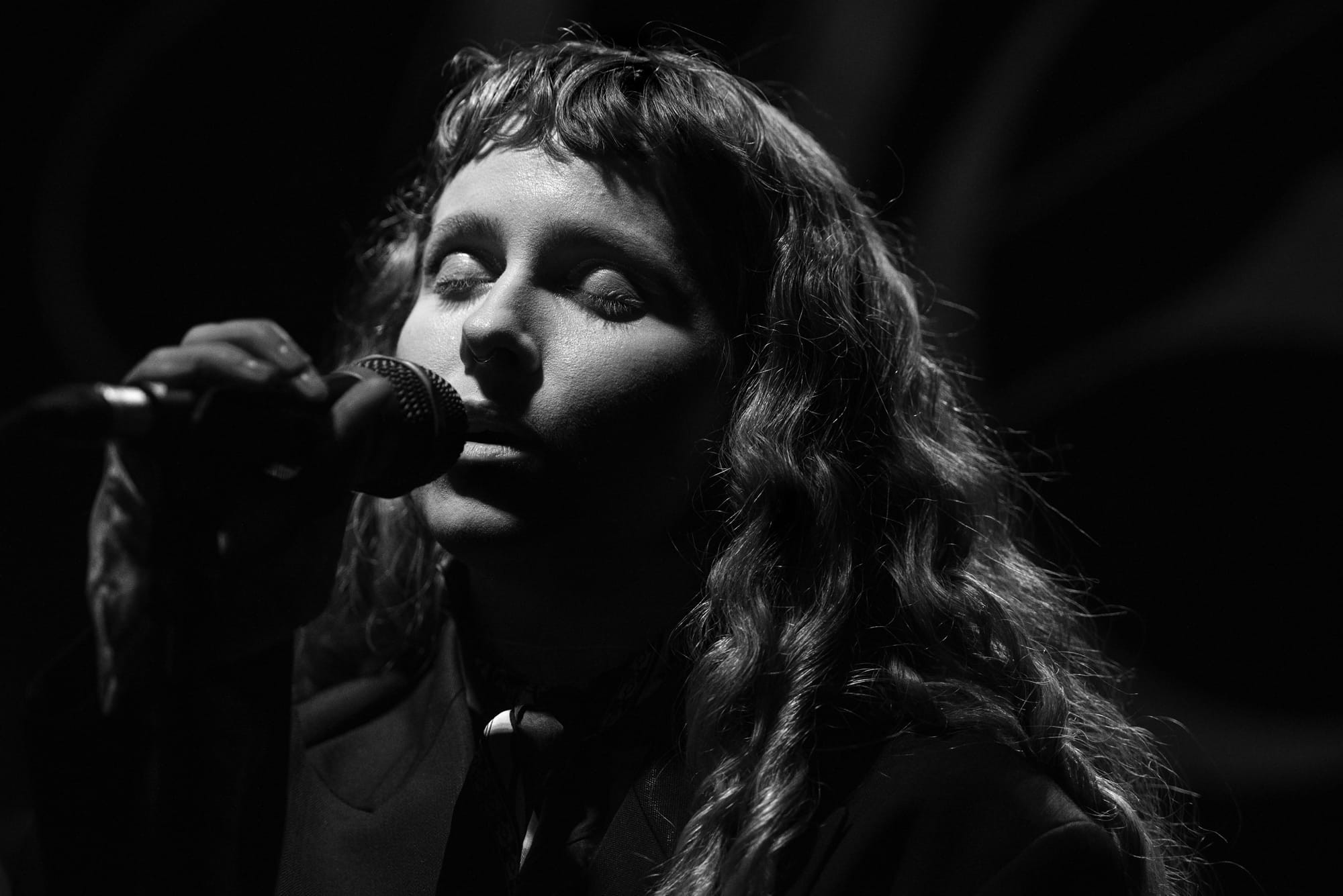
Once this connection bridges the gap, it all makes sense: We are capable of fiery love, despairing sadness, and profound gratitude. Moyka sounds large because our feelings are overwhelming. Her music becomes a catalyst for recognising and accepting these moments of emotional excessiveness.
I know you're holding your guard up
And I know that you think you're bad luck
But darling, that's not who you are to me
—Moyka - Rear View
Moyka led by example: There was no filter, no stage persona clouding her authenticity. She not only accepted but invited and embraced vulnerability. She spread pure joy. When two people in the audience kissed, her eyes lit up so bright they could convert the devil to a saint.
And we followed. We danced in tender escalation, closed our eyes and dreamed, revelled in delight, escaped reality and received catharsis.
